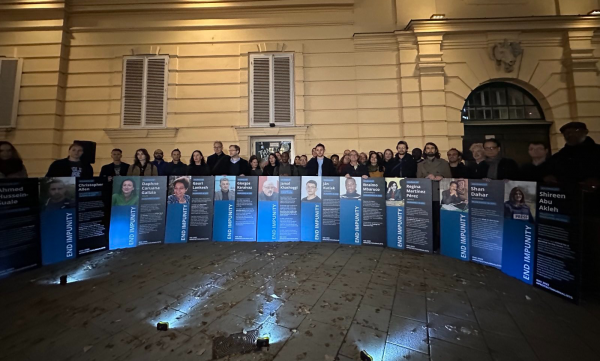Legislative Decree No. 108, passed by the Syrian Cabinet on Sunday 28 August, will entrench government control over the media, criminalize criticism, and put media regulation in the direct control of the Syrian cabinet, according to IPI’s analysis of a summary published by the Syrian Arab News Agency.
According to the SANA summary, the law is based on the principles of freedom of expression as they are guaranteed in the constitution of the Syrian Arab Republic, the Universal Declaration of Human Rights and other international agreements – but subsequent provisions do not meet accepted press freedom standards.
The law reportedly gives journalists the right to “freedom except in the limits of the law,” and includes some provisions that are, on the surface, quite positive, such as the right of journalists to protect their sources, the right to access information, and the right to not be detained or interrogated without a legal representative.
However, these positives steps are undermined through provisions which state, for instance, that freedom of expression must be “practiced with responsibility and awareness,” and that journalists must be committed to “objectivity.” While objectivity and certainly truth are important journalistic principles, this is a worrying provision because it leaves it in the hands of the National Council of Information – which will be appointed by and responsible to the Cabinet, a political government body – to decide what is or is not “responsible” and “objective,” which of course could threaten journalists who publish information that is uncomfortable or unpleasant for the government, or who express opinions that are critical.
Media outlets cannot publish anything that affects “national unity and national security,” which “harms the holy religions and beliefs,” or “incites sectarian or confessional strife.” While incitement is never acceptable, the prohibition of any content that “has to do with inciting crimes, acts of violence and terrorism and inciting hatred and racism” is so broadly worded that any journalist reporting on the ongoing uprisings in several Syrian cities, and the reported crackdown on protestors, could be accused of “inciting hatred and racism.”
The provision that prohibits publication of any news and information about the army and armed forces except information that is “issued by the army and armed forces” contravenes generally accepted press freedom standards. The armed forces and their activities are a matter of public interest, and are a legitimate subject of news reports and commentary.
The media law also establishes a National Council of Information that will act as a licensing and regulatory body. But the law stipulates that the Council will be “linked to the Cabinet,” which has the final decision on whether a new media outlet will be licensed. There is a clear conflict of interest in establishing a regulatory council that will license new media, establish mechanisms for accrediting foreign journalists, and work toward press freedom, if that council is directly accountable to the Cabinet.
The law says that those who attack journalists “in the line of duty” will be considered to have attacked a “public employee.” Although subject to certain extra protections under international law, for example during armed conflict, journalists should not in general be categorized differently than regular citizens.
IPI Director Alison Bethel McKenzie said: “We reiterate our call on President Bashar al-Assad to allow free reporting in Syria, as opposed to tightening the screws under the guise of developing press freedom. No journalist, anywhere in the world, should have to fear death, imprisonment, assault and torture because of his or her work.”


